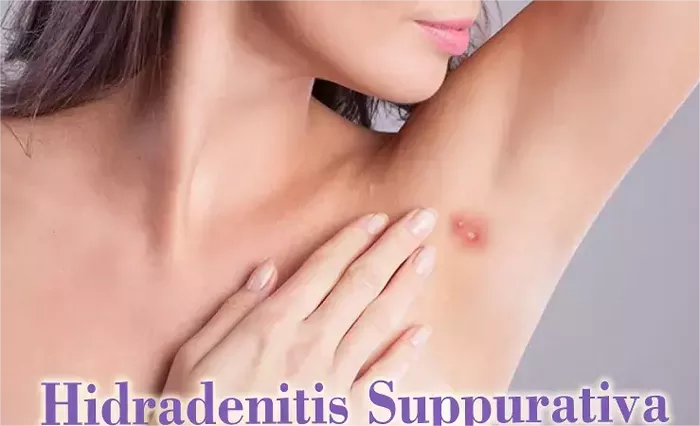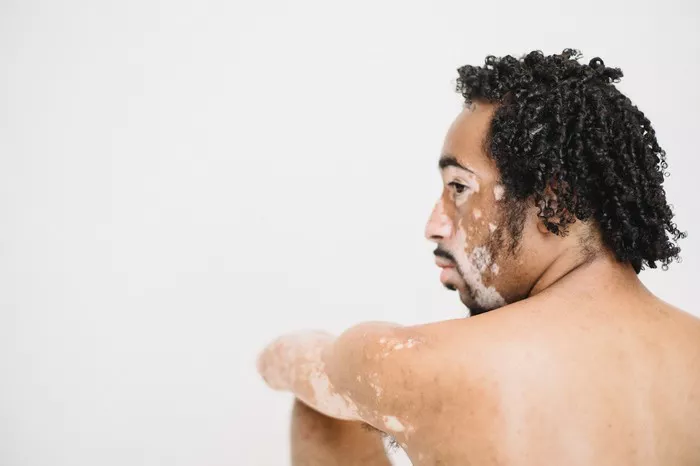Hidradenitis Suppurativa (HS) is a chronic, inflammatory skin condition characterized by recurrent, painful nodules and abscesses, primarily affecting areas rich in apocrine glands such as the axillae, groin, and under the breasts. The condition can significantly impair the quality of life due to its painful nature, recurrent flare-ups, and potential for severe scarring. Although the exact etiology of HS remains unclear, it is believed to involve a combination of genetic, environmental, and immunological factors. The role of bacterial infection in HS is also a subject of ongoing research, making antibiotics a cornerstone in its treatment, especially in managing secondary infections and reducing inflammation.
Pathophysiology and the Role of Antibiotics
Hidradenitis Suppurativa involves follicular occlusion, rupture of the follicular epithelium, and subsequent inflammatory response. This inflammatory cascade leads to the formation of painful nodules, abscesses, and sinus tracts. Secondary bacterial infection can exacerbate the symptoms and contribute to the chronicity of the disease. Antibiotics play a critical role not only in treating secondary bacterial infections but also in modulating the immune response to reduce inflammation.
Types of Antibiotics Used in Hidradenitis Suppurativa
Tetracyclines
1. Doxycycline and Minocycline
Doxycycline and minocycline are among the most commonly prescribed antibiotics for HS due to their anti-inflammatory properties in addition to their antimicrobial effects. These antibiotics are often used as first-line treatments for mild to moderate HS.
- Doxycycline: Typically administered at a dose of 100 mg twice daily, doxycycline helps reduce inflammation and bacterial load. Its anti-inflammatory effect is particularly beneficial in controlling the chronic inflammatory nature of HS.
- Minocycline: Minocycline, also dosed at 100 mg twice daily, is another effective tetracycline. It has a similar mechanism of action to doxycycline but can be better tolerated by some patients.
Mechanism of Action: Tetracyclines inhibit bacterial protein synthesis by binding to the 30S ribosomal subunit, thus preventing bacterial growth. They also exhibit anti-inflammatory properties by inhibiting matrix metalloproteinases and reducing neutrophil chemotaxis.
Side Effects: Common side effects include gastrointestinal disturbances, photosensitivity, and potential for hepatotoxicity. Long-term use requires monitoring for these adverse effects.
Clindamycin
Clindamycin is an antibiotic with potent activity against anaerobic bacteria and some protozoa. It is often used in both topical and oral forms for the treatment of HS.
- Topical Clindamycin: A 1% topical solution or gel applied twice daily can be effective for localized lesions. It is particularly useful in mild cases and helps to reduce the bacterial load on the skin.
- Oral Clindamycin: When systemic treatment is required, oral clindamycin, dosed at 300 mg twice daily, can be used. It is often combined with rifampin for enhanced efficacy.
Mechanism of Action: Clindamycin inhibits bacterial protein synthesis by binding to the 50S ribosomal subunit, thereby preventing bacterial growth. It also has immunomodulatory effects that help reduce inflammation.
Side Effects: The most significant risk with clindamycin is the development of Clostridium difficile-associated diarrhea, which can be severe. Other side effects include gastrointestinal upset and rash.
Rifampin
Rifampin is an antibiotic primarily used in the treatment of tuberculosis but has found a role in the management of HS due to its broad-spectrum activity and ability to penetrate biofilms.
- Combination Therapy: Rifampin is rarely used as monotherapy for HS. It is commonly combined with clindamycin or moxifloxacin for synergistic effects. The typical dose is 300 mg twice daily.
Mechanism of Action: Rifampin inhibits bacterial RNA synthesis by binding to the DNA-dependent RNA polymerase, thereby preventing bacterial replication. It is effective against both intracellular and extracellular bacteria.
Side Effects: Rifampin can cause hepatotoxicity, gastrointestinal disturbances, and discoloration of bodily fluids. It also has numerous drug interactions due to its induction of cytochrome P450 enzymes.
Metronidazole
Metronidazole is another antibiotic with activity against anaerobic bacteria and protozoa, used both topically and systemically in HS treatment.
- Topical Metronidazole: Often used in a 0.75% to 1% gel or cream, applied twice daily, to reduce localized inflammation and bacterial load.
- Oral Metronidazole: Systemic treatment involves doses ranging from 500 mg twice daily to 750 mg three times daily, depending on the severity of the condition and presence of secondary infection.
SEE ALSO: What Medicine Helps with Hidradenitis Suppurativa
Mechanism of Action: Metronidazole works by disrupting DNA synthesis in anaerobic bacteria and protozoa, leading to cell death. It also has anti-inflammatory properties, which help reduce HS symptoms.
Side Effects: Common side effects include gastrointestinal upset, metallic taste, and potential neurotoxicity with long-term use. Patients are advised to avoid alcohol due to the risk of a disulfiram-like reaction.
Combination Antibiotic Therapies
Given the complex and often recalcitrant nature of HS, combination antibiotic therapies are frequently employed to enhance efficacy and reduce the development of bacterial resistance.
Clindamycin and Rifampin
The combination of clindamycin and rifampin is one of the most studied and effective regimens for HS. This combination leverages the different mechanisms of action and spectrum of activity of both drugs.
Dosing: Clindamycin 300 mg twice daily combined with rifampin 300 mg twice daily is the typical regimen.
Efficacy: Studies have shown significant improvement in HS symptoms, with reduced lesion count and pain. This combination also helps in achieving longer periods of remission.
Rifampin, Moxifloxacin, and Metronidazole
This three-drug regimen is used for more severe or refractory cases of HS. It combines the broad-spectrum activity of rifampin, the fluoroquinolone moxifloxacin, and the anaerobic coverage of metronidazole.
Dosing: Rifampin 300 mg twice daily, moxifloxacin 400 mg once daily, and metronidazole 500 mg twice daily.
Efficacy: This combination is particularly effective in severe HS with extensive sinus tracts and abscesses. It helps reduce bacterial load, inflammation, and promotes healing of sinus tracts.
Side Effects: The combined side effects of these drugs can be significant, including hepatotoxicity, gastrointestinal disturbances, and potential for antibiotic resistance. Close monitoring is required.
Role of Antibiotics in the Treatment Algorithm for HS
Antibiotics are a crucial component of the multidisciplinary approach to HS management. Their use is often stratified based on the severity of the disease:
Mild HS
Topical Antibiotics: For patients with mild disease, topical clindamycin or metronidazole can be effective in reducing localized inflammation and infection.
Oral Antibiotics: Doxycycline or minocycline can be used as first-line systemic treatments.
Moderate HS
Combination Therapy: Oral clindamycin combined with rifampin is often employed for moderate cases, providing a synergistic effect to reduce bacterial load and inflammation.
Long-term Maintenance: After achieving initial control, patients may be maintained on doxycycline or minocycline to prevent recurrence.
Severe HS
Aggressive Combination Therapy: For severe or refractory cases, combinations such as rifampin, moxifloxacin, and metronidazole are used.
Surgical Intervention: Antibiotics are often combined with surgical interventions such as incision and drainage, debridement, or laser therapy to manage severe lesions and sinus tracts.
Challenges and Considerations in Antibiotic Use
Antibiotic Resistance
The chronic nature of HS and the frequent use of antibiotics pose a significant risk for the development of antibiotic-resistant bacteria. This necessitates judicious use of antibiotics and consideration of alternative treatments when appropriate.
Long-term Safety
Long-term antibiotic therapy can lead to various side effects, including gastrointestinal disturbances, hepatotoxicity, and disruption of normal flora leading to secondary infections such as Clostridium difficile colitis. Regular monitoring and periodic reassessment of the treatment regimen are essential to mitigate these risks.
Individualized Treatment
HS is a heterogeneous disease with varying presentations and responses to treatment. An individualized approach, taking into account the severity of the disease, patient preferences, and previous treatment responses, is crucial for optimal management. Multidisciplinary care involving dermatologists, surgeons, and infectious disease specialists can enhance treatment outcomes.
Conclusion
Antibiotics play a pivotal role in the management of Hidradenitis Suppurativa, particularly in controlling secondary bacterial infections and modulating inflammation. A variety of antibiotics, including tetracyclines, clindamycin, rifampin, and metronidazole, are employed depending on the severity of the disease. Combination therapies often yield the best results, particularly for moderate to severe cases. However, the risks of antibiotic resistance and long-term side effects necessitate careful monitoring and a personalized approach to treatment. As research continues to uncover more about the pathophysiology of HS, future therapies may further enhance our ability to manage this challenging condition effectively.
Related Topics:

























